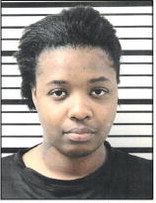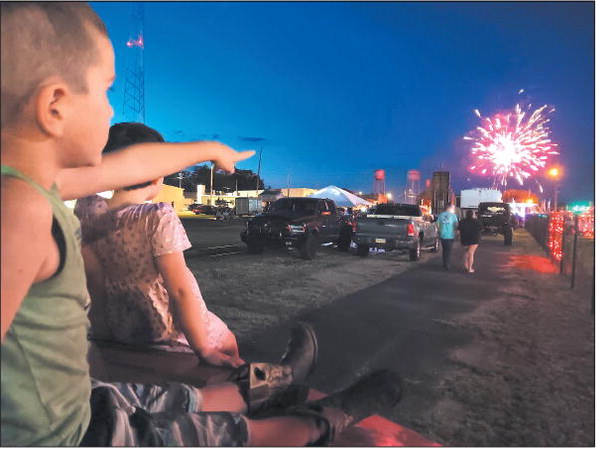HCA Robotically-Assisted Surgery Latest Innovation
When Hospital Corporation of America purchased Vidalia’s Meadows Hospital in May, the agreement was that HCA would invest $10 million in the formerly communityowned facility over a 5-year period. HCA has not only made good on its promise, it has topped it substantially and well ahead of the time period to which it committed. “When we first came in, we infused roughly $6.2 million in the first 60 days. We are now at a point where we have invested $12.5 million over a five-month period,” said Matt Hasbrouck, CEO at Memorial Health Meadows Hospital. Hasbrouck explained that this investment has reinforced the hospital structure to ensure that HCA maintains a well-built facility and keeps it up to date. The investment also goes toward equipment and clinical devices to bring care for local residents close to home.
“With the infusion of capital dollars we are bringing in additional ventilators, transport monitors, stateof- the-art beds in ICU and medicalsurgical units, and outfitting the hospital’s five operating rooms with the latest technology,” the CEO said.
Perhaps one of the most exciting investments is a $2,012,000 million machine that provides roboticallyassisted surgery and is already in use at Meadows. The new Da Vinci XI robotic assisted surgical system and the team that is utilizing it will be introduced to the community in an open house at Meadows on Thursday, November 18. The public can see the new equipment in action from 6 until 7 p.m. and meet the robotically trained surgeons from 7 until 7:30 p.m.
“The newest generation of surgeons is training on this equipment and by having this equipment at Meadows, we will be able to attract and retain the best and brightest,” Hasbrouck said. He emphasized that the new equipment does not actually replace the surgeon in the operating room, but greatly enhances the surgeon’s abilities. “It’s there to compliment the surgeon, but the surgeon is continued from page
in full control at all times,” Hasbrouck said.
Robotically- assisted surgery is not a new technology. It was actually being used over a decade ago. “But it is not everywhere because it is expensive and medical facilities have to have trained staff to use it effectively,” Hasbrouck pointed out. The robotically- assisted surgeries were first used mainly in urology and gynecology, and later in general surgery for procedures like hernia repair and appendectomies. Later, the equipment’s use moved into the thoracic and cardiovascular realm and beyond. “It now stems across most of the surgical spectrum,” Hasbrouck said.
The benefits of robotically- assisted surgery are multiple. “The equipment gives surgeons much greater freedom of arm and wrist movement and more precision,” Hasbrouck said. The equipment helps reduce loss of blood, it helps reduce pain, time in the hospital and recovery time, and it helps reduce scarring. Because of the ergonomics of the system, with the surgeon’s ability to sit at a console instead of being hunched over an operating table for four to six hours, use of the equipment can prolong a surgeon’s lifespan and ability to practice, Hasbrouck noted.
Meadows now has four, full-time surgeons who are trained and certified to use the robotic equipment. As part of HCA, Meadows is linked to Memorial Health University Medical Center in Savannah where five robotically-assisted devices are in use. “Memorial is one of the largest providers of robotically-assisted surgery in the state and it has an education program built around it. Surgery residents actually train on the consoles there,” Hasbrouck explained. He added that 36 surgeons are now training on the robotic system at Memorial. “To have a system here would mean that we are a destination site for new surgeons.” The training available for Meadows’ staff through the program at Memorial will bring additional value to the community. The robotics surgery team at Meadows will include, in addition to the surgeon, certified surgical technologists, nursing circulators responsible for the safety of everyone in room, and an anesthesiologist. All will be trained and certified through the Memorial program, and the plan is to train and certify additional physicians and physician assistants.
Meadows has a medical staff for all of the core specialties, but is actively recruiting a medical oncologist on a full-time, permanent basis, a urologist, and an ear, nose and throat specialist. Having a robotic component helps that process. “It has a stickiness to it, to have these tools which are being used in other major facilities also active at Meadows,” Hasbrouck said.
Looking into the near future, Meadows is expanding its services in cardiology by bringing in two subspecialists in electrophysiology. These board and fellowship trained specialists will be working with the Meadows’ cardiology team to assist with various cardiac rhythm-related abnormalities, such as atrial fibrilation. The addition of these medical experts will enable electrophysiology studies that can diagnose specific, conduction-related heart issues and provide for a greater availability of cardiac pacemaker placement, for instance. The electrophysiologists will come from Savannah and establish a hub in Vidalia so patients can be seen in Vidalia.
“We not only want to meet the commitment we made but exceed it for the long term,” Hasbrouck said. New technology will continue to come. “We see tremendous opportunity in Vidalia because we had a good foundation from which to accelerate. The previous administration, the board, the medical team, and the community set up a platform—from an infrastructure and clinical expertise perspective— from which to launch. We will complement that quickly and be able to show results. It’s about providing compassionate, innovative care with great outcomes.”

PART OF THE TEAM — Also part of the Robotic-Assisted Surgery Team are, from left, Jordan Strickland, Physician and Provider Relations Director, and Jeffrey Harden-Chief Nursing Officer.





